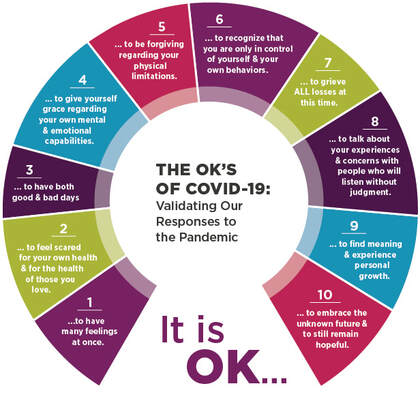|
COVID-19 has turned the entire world upside down, forcing people of all ages, race, gender and backgrounds to reluctantly adjust to a new and ever-changing "normal", thus creating some confusing, stressful and sometimes frightening situations. Lost jobs, crumbling relationships/divorce, racial tensions, and an economy in a downturn, we’re all feeling some level of trauma.
But are Children Feeling this Trauma too? According to Dr. Adam D. Brown, clinical assistant professor in the Department of Child and Adolescent Psychiatry at NYU Langone and member of its Child Study Center, THEY ARE. Children’s reactions following a traumatic event vary depending on their age, developmental level, degree of social support and coping skills, among other factors. Some show signs and some do not - each child’s response mechanism is completely different. Dr. Brown provided a few typical reactions that young children – ages 10 and under – may exhibit after experiencing trauma.
When Should Caregivers Consider Professional Help for Their Child? If the child’s symptoms do not decrease in two to four weeks after the traumatic event, it may be beneficial to seek out a child or adolescent psychiatrist of psychologist. However, with COVID, this is difficult to assess since it’s ongoing. If you’re unsure, consult with a professional and try to find a provider with knowledge of trauma and evidence-based or evidence-informed treatments for treating traumatic stress. Other situations that may warrant a specialist:
How Can Caregivers Help Their Child Cope?
How Can Caregivers Help Children Manage Their Feelings?
ACE’s website serves as a comprehensive resource hub for those seeking help with trauma. Please visit the Resource section for more information. Specifically, check out this Help Guide discussing trauma in children.
0 Comments
Leave a Reply. |
AuthorWrite something about yourself. No need to be fancy, just an overview. Archives
June 2022
Categories |


 RSS Feed
RSS Feed